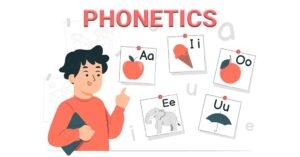
In today’s globalized world, proficiency in English has become a prerequisite for success in various fields, from education to employment and beyond. With countless English proficiency tests available, choosing the right one can be daunting. However, one test stands out as the most widely accepted and recognized worldwide: the International English Language Testing System (IELTS). In this comprehensive guide, we’ll delve into the intricacies of the IELTS exam, exploring its significance, structure, and why it remains the gold standard for assessing English language skills globally.
Understanding the Significance of IELTS:
Firstly, let’s grasp why the IELTS holds such paramount importance in the realm of English proficiency testing. Accepted by over 11,000 organizations worldwide, including universities, employers, immigration authorities, and professional bodies, the IELTS enjoys unparalleled recognition and credibility. Its widespread acceptance makes it the preferred choice for individuals seeking to study, work, or migrate to English-speaking countries.
Exploring the Structure of the Exam:
The IELTS exam comprises four main sections: Listening, Reading, Writing, and Speaking. Each section assesses different language skills, providing a holistic evaluation of the test taker’s English proficiency. The Listening and Speaking sections are the same for both the Academic and General Training versions of the test, while the Reading and Writing sections differ slightly in content. Understanding the format and expectations of each section is crucial for achieving success in the exam.
Preparation Strategies for Success:
Preparation is key to performing well in the IELTS exam. From honing language skills to familiarizing oneself with the test format, there are various strategies individuals can employ to boost their scores. Engaging in regular practice tests, expanding vocabulary, improving grammar and pronunciation, and seeking guidance from reputable IELTS preparation resources can significantly enhance performance on exam day.
Advantages of IELTS:
One of the significant advantages of the IELTS exam is its focus on real-life language skills. Unlike some other tests that prioritize academic English, the IELTS assesses language proficiency in practical contexts, making it relevant for individuals from diverse backgrounds and purposes. Additionally, the IELTS offers test takers flexibility in terms of test dates and locations, enabling them to choose options that suit their schedules and preferences.
Conclusion:
In conclusion, the International English Language Testing System (IELTS) stands as the most widely accepted and internationally recognized English proficiency test. Its credibility, comprehensive evaluation of language skills, and relevance to real-life contexts make it the preferred choice for millions of individuals worldwide. By understanding the significance of the IELTS exam, familiarizing oneself with its structure, and employing effective preparation strategies, test takers can unlock doors to academic and professional opportunities around the globe. Whether aiming to study abroad, pursue career advancements, or relocate to an English-speaking country, mastering the IELTS is an essential step towards achieving these goals.
Why Students Prefer IELTS Over Other Language Tests: A Comprehensive Guide
In the realm of language proficiency tests, the International English Language Testing System (IELTS) stands as a formidable contender. It’s a benchmark for individuals aiming to study, work, or immigrate to English-speaking countries. While there are several language tests available, there’s a distinct preference among students for IELTS over others. Let’s delve into the reasons behind this widespread favoritism.
1. Global Recognition and Acceptance:
One of the primary reasons students lean towards IELTS is its widespread recognition and acceptance by thousands of institutions and organizations globally. From universities and colleges to employers and immigration authorities, IELTS scores are widely accepted and trusted. This universality offers students a broader array of opportunities in terms of education, career, and migration pathways.
2. Two Test Formats Catering to Different Needs:
IELTS offers two test formats: Academic and General Training. The Academic version is designed for those seeking admission to undergraduate or postgraduate programs, while the General Training version is typically for migration and work-related purposes. This flexibility caters to the diverse needs of students, allowing them to choose the test format most relevant to their goals.
3. Comprehensive Assessment:
IELTS assesses all four language skills — Listening, Reading, Writing, and Speaking — offering a comprehensive evaluation of a candidate’s English proficiency. This balanced assessment provides a holistic view of an individual’s language abilities, which is crucial for academic and professional success in an English-speaking environment.
4. Real-life Communication Focus:
Unlike some other tests that may emphasize theoretical knowledge or academic English proficiency, IELTS places a significant emphasis on real-life communication skills. This approach resonates with students as it reflects the practical usage of English in everyday scenarios, making the test more relevant and relate-able to their experiences.
5. Interactive Speaking Test:
The Speaking component of IELTS is conducted face-to-face with a certified examiner, offering a more interactive and personalized experience. This format allows candidates to engage in a natural conversation, providing a better reflection of their speaking abilities compared to tests that utilize automated or computer-based assessments.
6. Regular Test Availability:
IELTS is conducted frequently throughout the year, with test dates available in numerous locations worldwide. This accessibility makes it convenient for students to schedule their exams according to their preferences and time-lines, reducing the hassle associated with test planning and preparation.
7. Preparation Resources and Support:
Numerous preparation materials, including practice tests, study guides, and on-line resources, are available to help students prepare for the IELTS exam. Additionally, many language schools and training centres offer specialized courses and workshops tailored to IELTS preparation, equipping students with the necessary skills and strategies to excel in the test.
8. Fair and Transparent Scoring System:
IELTS follows a transparent scoring system that is widely understood and accepted. Scores are reported on a nine-band scale, with each band corresponding to a specific level of English proficiency. This clarity and consistency in scoring provide students with a clear understanding of their strengths and areas for improvement, enabling them to make informed decisions about their further academic or professional pursuits.
In conclusion, the preference for IELTS among students over other language tests can be attributed to its global recognition, comprehensive assessment, real-life communication focus, flexibility, and availability, among other factors. As an indispensable tool for individuals aspiring to pursue opportunities in English-speaking environments, IELTS continues to be the preferred choice for countless students worldwide. For best IELTS preparation in Lahore, visit our office.





